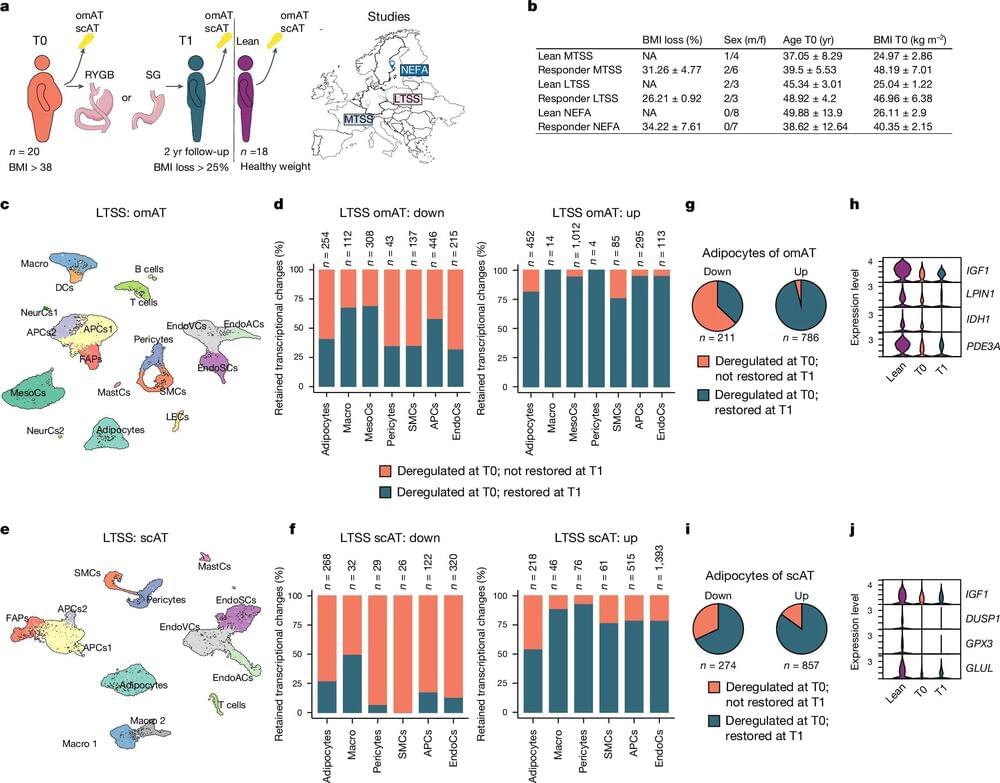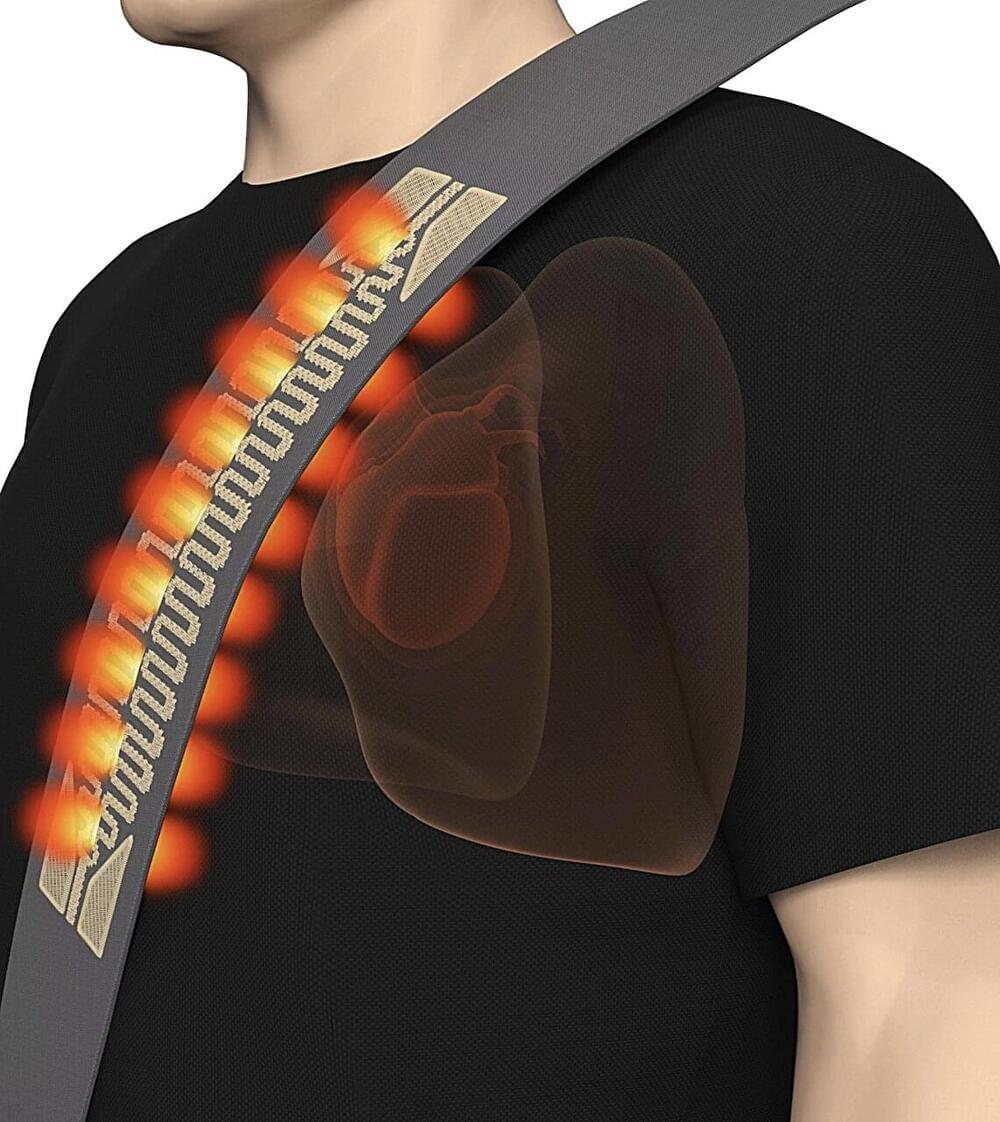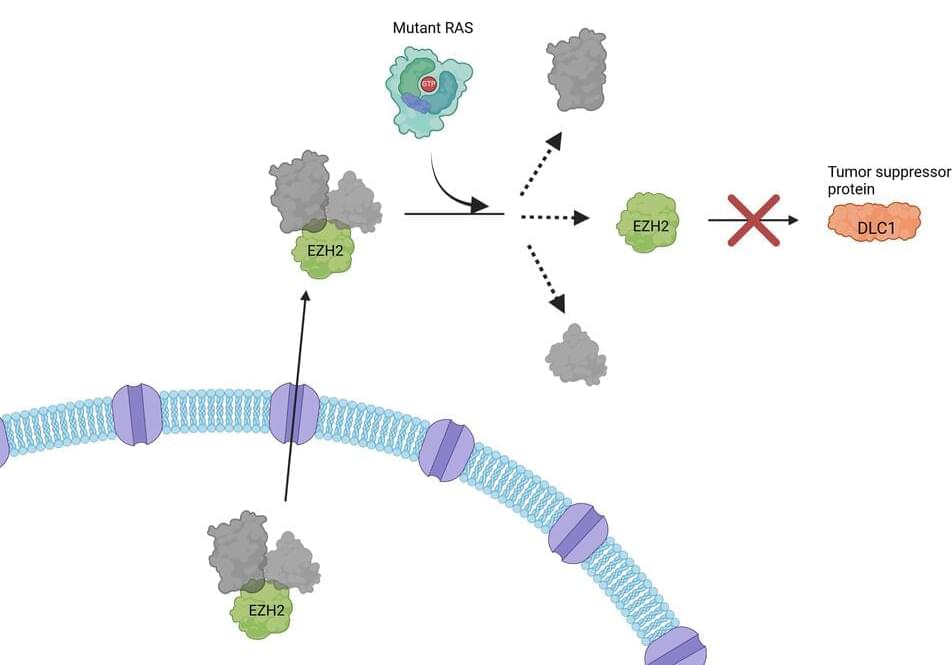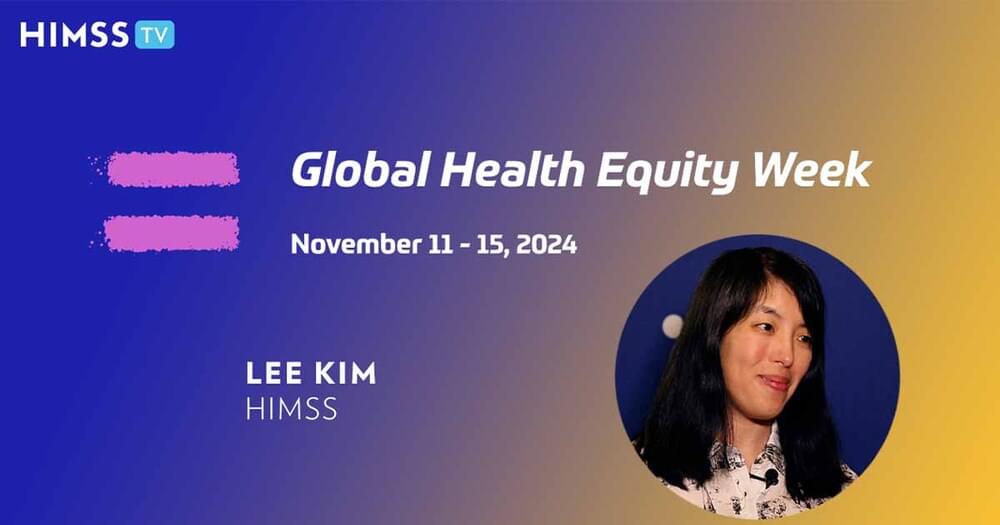Here’s how our bioacoustic foundation model, Health Acoustic Representations (HeAR), may help improve health outcomes for people across India.



We might like to think of ourselves as autonomous entities but, in reality, we’re more like walking ecosystems, teeming with bacteria, viruses, and other microbes. It turns out that differences in these microbes might be as crucial to evolution and natural variation as genetic mutations are.
This novel perspective was discussed in a recent publication by Seth Bordenstein, director of Penn State’s One Health Microbiome Center, who is a professor of biology and entomology and holds the Dorothy Foehr Huck and J. Lloyd Huck Endowed Chair in Microbiome Sciences.
He, along with 21 colleagues from around the globe, collectively known as the Holobiont Biology Network, propose that understanding the relationships between microbes and their hosts will lead to a more profound understanding of biological variation.

Can weight loss leave a lasting imprint on our fat cells?
Losing weight is often touted as a cornerstone of better health, particularly for people dealing with obesity and its associated health risks.
Anyone who has ever tried to get rid of a few extra kilos knows the frustration: the weight drops initially, only to be back within a matter of weeks—the yo-yo effect has struck. Researchers at ETH Zurich have now been able to show that this is all down to epigenetics.
Epigenetics is the part of genetics that’s based not on the sequence of genetic building blocks, but on small yet characteristic chemical markers on these building blocks. The sequence of building blocks has evolved over a long period of time; we all inherit them from our parents.
Epigenetic markers, on the other hand, are more dynamic: environmental factors, our eating habits and the condition of our body—such as obesity—can change them over the course of a lifetime. But they can remain stable for many years, sometimes decades, and during this time, they play a key role in determining which genes are active in our cells and which are not.


Over the past decades, electronics and biomedical engineers have developed increasingly sophisticated biosensors, devices that can pick up biological signals from human users. These sensors, which are generally embedded in wearable or implantable technologies, often do not perform as well in settings where users are moving a lot, such as within a vehicle.
Researchers at the National University of Singapore and Tsinghua University have recently developed a new sensor that can pick up and track biological signals, such as the heartbeat and respiration, without being in contact with the body of users. This sensor, presented in a paper published in Nature Electronics, could be used to pick up the cardiopulmonary signals of humans while they are in dynamic and closed environments, such as a plane cabin, a moving car or a bus.
“Monitoring drivers’ alertness or stress is essential for road safety,” Xi Tian, co-author of the paper, told Tech Xplore. “Existing sensors designed to measure physiological markers of fatigue, such as heart rate and respiration, face challenges in moving vehicles due to the unpredictable vibrational noise. To overcome these challenges, our research focused on developing an automotive biosensor capable of non-contact and reliable health monitoring in dynamic environments.”

Researchers at the National Institutes of Health (NIH) and their collaborators have discovered a new way in which RAS genes, which are commonly mutated in cancer, may drive tumor growth beyond their well-known role in signaling at the cell surface.
Mutant RAS, they found, helps to kick off a series of events involving the transport of specific nuclear proteins that lead to uncontrolled tumor growth, according to a study published November 11, 2024, in Nature Cancer.
RAS genes are the second most frequently mutated genes in cancer, and mutant RAS proteins are key drivers of some of the deadliest cancers, including nearly all pancreatic cancers, half of colorectal cancers, and one-third of lung cancers.
Microorganisms—bacteria, viruses and other tiny life forms—may drive biological variation in visible life as much, if not more, than genetic mutations, creating new lineages and even new species of animals and plants, according to Seth Bordenstein, director of Penn State’s One Health Microbiome Center, professor of biology and entomology, and the Dorothy Foehr Huck and J. Lloyd Huck Endowed Chair in Microbiome Sciences.
Bordenstein and 21 other scientists from around the world published a paper in Science, summarizing research that they said drives a deeper understanding of biological variation by uniting life’s seen and unseen realms.
The authors explained that this newly described concept—holobiont biology —underpins a multidisciplinary and holistic understanding of how life’s forms and functions, from human disease to agricultural output, depend upon the relationships between microorganisms and their hosts. Penn State News spoke with Bordenstein about the paper and the emerging field of holobiont biology.

Artificial intelligence holds the potential to bring a commercial and economic rebirth for the United States and its allies. Yet the U.S. Congress is getting skittish. Its leaders are reportedly negotiating a lame-duck bill to regulate the AI industry.
As officials push and prod on the new technology, they should exercise caution.

Researchers from Baylor College of Medicine, Stanford University School of Medicine, and their collaborators have identified a novel compound called BHB-Phe, which is naturally produced by the body. Published in the journal Cell, their findings reveal that BHB-Phe regulates appetite and body weight by interacting with neurons in the brain.
Until now, BHB has been known as a compound produced by the liver to be used as fuel. However, in recent years, scientists have found that BHB increases in the body after fasting or exercise, prompting interest in investigating potential beneficial applications in obesity and diabetes.

AI be leveraged to improve cybersecurity and health equity #PopHealthIT
For Global Health Equity Week, HIMSS senior principal of cybersecurity and privacy Lee Kim describes some of the ways how privacy and security intersect with health access and patient engagement – and how artificial intelligence can help.